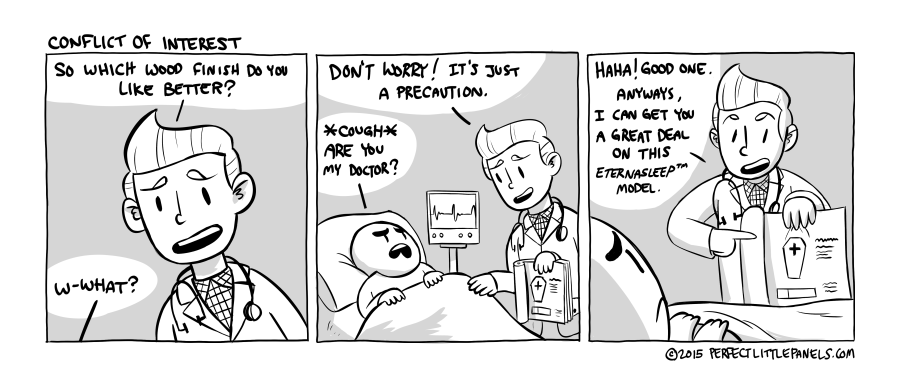Adam McCauley
am463612@ohio.edu
Perception is King
Conflicts of interest are going to exist in media in some form no matter what. Despite the general rule that a journalist must stay independent, outside interests always have the potential to leak into your career. Whether the conflict is benign or malignant, how people perceive a relationship is the most important thing. A factor of this is that readers are usually very critical of the media, especially if what is being reported doesn’t align with their views. It doesn’t help the process that conflicts are usually disguised very well.
 | |
|
Accuracy in Media
Roger Aronoff had a story detailing the connections within the media and the Obama administration, on the site Accuracy in Media, and pretty much used these connections to assume that there is a conscious effort by the administration to cover up certain stories while pushing others. The article does little more than rebuff quotes from the original Washington Post story covering this and using connections to pull conclusions out of the air and present them as undoubted facts. The following passage from the article sums all the previous points perfectly.
"Farhi quotes Jeffrey Schneider, ABC News’ chief spokesman, as saying, “There is zero evidence, zero, that [Ben Sherwood’s relationship] has had any impact on our coverage.” Evidence is an interesting word in this context. How about common sense and human nature? Though not quantifiable evidence, they certainly lead us to draw conclusions. Conclusions that our liberal media clearly don’t want us to draw."
This is a clear example of how toxic a perceived conflict of interest can be. Despite no evidence proving truth that the media ties in Obama's administration are directly responsible for covering up Benghazi, the author still spouts it off as fact due to "common sense and human nature."
Checkbook Journalism
Journalists and Strategic Communication professionals always have to be wary of an organization or an individual attempting to buy them. Checkbook Journalism refers to the practice of paying for the news, and it is a two-way street. Journalists are encouraged to accept as little as possible from someone or an organization, whether that be a full meal or gift basket, it is unwise to make it appear that there is any connection between your story and what may be offered.
The other side of this is money or gifts being changed from the hands of the journalist to the hands of someone who may have a scoop on a story. The Sun in England came under fire for this as a money trail in the hundreds of thousands of euros was found to be used to pay for stories or loosen up a source for a future story. Even though stories frequently get shopped online for tabloids and other less ethical outlets, paying someone to provide a story or be a source is rough ethical territory that sets a journalist up to get burnt and lose credibility.
No comments:
Post a Comment